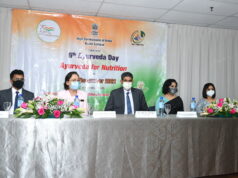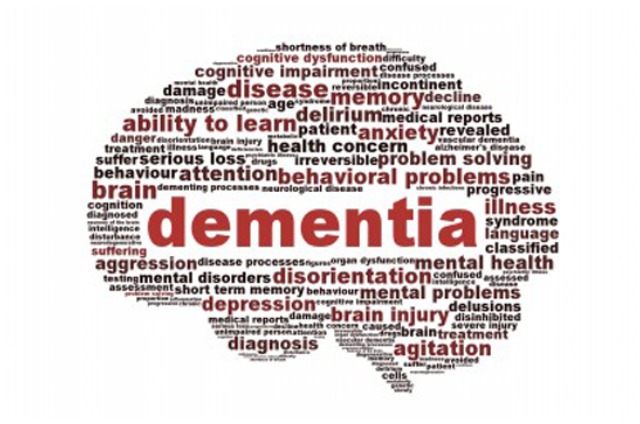SEPT 2- They continue to be the rage: detox diets of mono foods and juice cleanses.
Celebrities including Kate Moss and Elizabeth Hurley swear by them.
Enter any health store, and there are numerous detox kits awaiting you. Whether it’s fasting that is said to give rest to the digestive tract or the idea of gulping glasses of ‘magical concoctions’, does it really help our body? Doctors rubbish any idea in favour of these clean-ups.
“Our body does not need servicing so often. Its natural system of cleansing is sophisticated and efficient enough in doing the same job,” says Dr SP Byotra, head, internal medicine, Sir Gangaram Hospital.
Liver and kidneys perform their tasks very well. “As long as the two organs are functioning properly, there is no need absolutely to get the toxins out through artificial methods.
Toxic food components are broken down by the liver and these then go to the kidneys, from where they are excreted,” says Neelanjana Singh, nutritionist, Heinz Nutri Life clinic.
Detoxification is not meant for healthy individuals. “A healthy lifestyle is good enough.
If we eat a balanced diet, do regular exercises and give proper relaxation to our bodies, toxins won’t get accumulated,” says Shilpa Thakur, chief dietician, Asian Institute of Medical Sciences.
Remember, detox is a temporary solution to your health woes but a healthy lifestyle would outlast your goal of wellness.
Fasting is not the answer
Resorting to fasting is considered to be the next big favour you could do to yourself, whether it’s for detox or for weight loss. But going for long periods without eating is unhealthy and fasting isn’t required for healthy individuals.


When you fast for a prolonged period of time, you end up creating an abnormal physiological state. Afterall, the need to have breakfast, lunch and dinner is scientifically proven. Digestive enzymes are secreted at their peak during this time and they need the food to act upon them. “In the absence of food though, they end up damaging the lining of the digestive tract, leading to gastritis problems, ulcer, acid reflux, among other such health issues,” says Dr Namita Chadda, city based internal medicine specialist.
“Traditionally fasting was associated with inactivity but nowadays people continue with their jam packed schedules and fast all along. This can land them with starvation, weakness, dehydration, and fatigue,” says Dr Thakur.
Moreover turning fasting to feasting, is another big problem. “People end up eating oily and fried foods or lots of sweets that can be detrimental. Either they don’t eat the right type of food or tend to overeat. Fasting, therefore doesn’t end up being beneficial,” adds Dr Byotra. The other issue of concern is the health of gall bladder. “When you eat, the gall bladder is forced to contract, pushing the bile into the digestive tract. In its absence, the bile keeps accumulating inside the gall bladder.
Over a period of time, it turns into a sludge, leading to stone formation,” she says. In the absence of carbohydrate intake, the body derives energy from stored fats. When these stored fats are broken up, ketones are generated.
“High levels of ketones in the blood can end up damaging the liver, kidney and even heart muscles,” says Thakur. Fasting over a long period of time is said to weaken the immunity and deprive the body of essential nutrients.
“Among women, it increases their chances of developing arthritis, and osteoporosis due to calcium deficiency. This apart, it can increase chances of diabetes, hypertension and cardiac problems,” says Dr Chadda.
Pregnant women, nursing mothers and those with gastritis problem should especially avoid fasting. Also, those keen on fasting with their jam packed schedules should go for healthy foods like fruits, salads, milk among others.
Single fruit spree


The body is put on a period of strict diet regimen where only one fruit is eaten.
This regimen is believed to detoxify the internal organs by removing all toxins and wastes, relieving the digestive system which is otherwise under stress due to the combination of food items that we consume at a go.
But experts debunk the whole idea. “Important enzymes that are produced by the body go missing in such fad diets. The three enzymes including lipase, amylase and protease are meant for the digestion of fats, carbohydrates and proteins respectively.
These are secreted by the body simultaneously and we need to eat the foods they need to act upon,” says Thakur.
These single food diets have a temporary effect of cleansing and weight loss. Its not about instant results but about sustaining the effects. “The body needs all kinds of foods.
People report with signs of severe toxicity, lethargy and fatigue, after mindlessly following these kinds of diets,” says Dr Byotra.
It can cause toxicity, lethargy and fatigue.
Off the heavy metals


Cilantro and other such herbs, and chemical agents are used for heavy metal detox.
This kind of detoxification is required by people suffering from thalassemia as they require frequent blood transfusions, or those suffering from lead poisoning but not for healthy individuals.
Even spas and skin therapies offer to cleanse off the heavy metals in your sweat glands and skin.
” The extremely high temperature in sauna treatments can dehydrate you instead of detoxification. Excessive scrubbing can cause skin abrasion, which is particularly bad for people with high blood pressure, and diabetes,” Dr Chadda says.
Juicing the myth
Much touted in health magazines and TV talk shows, this type of cleanse has indeed caught up with overzealous health conscious Indians.
Juice therapy is all about extracting juice from fresh fruits and uncooked vegetables and making them your main diet.


“People are juicing for various reasons but all claims of benefits are overrated. Some of these short- term therapies could also be harmful for a perfectly healthy person.
There is no scientific evidence that surviving on them for weeks is going to make you any healthier,” says Thakur. In fact, consuming them at a go can land you with diarrhoea and unwanted weight gain.
That apart, its no news that juices can leave you with chronic deficiency of vital nutrients like lack of lean proteins, and others.
Colon clean-up
‘Getting the colon cleansed’ has become a term of household usage, with people turning to supplements, laxatives, herbs, and digestive enzymes to jump onto the bandwagon.


What helps in particular is insoluble fibre-found abundantly in whole grains, vegetables and lentils.
These foods are a really good bet for you, so eating more of them would benefit not just the colon but other vital organs as well.
Staying adequately hydrated is bound to help too. Colon cleansing can deplete you of vital nutrients, and doing it regularly could lead to malnutrition, anaemia, or heart failure.
Not just physiological problems, these can end you up with psychological issues as well. ” They lead to psychological dependence on these supplements leading to chronic deficiencies,” says Singh.
The colon on its own, absorbs water and electrolytes in order to maintain a required balance. Thus, aggressive cleaning may lead to dehydration or may disrupt the salt-water balance of the body.
Your kidneys, liver and spleen are more qualified to do the job on their own.
So skip the cleanse.
INDIA TODAY










